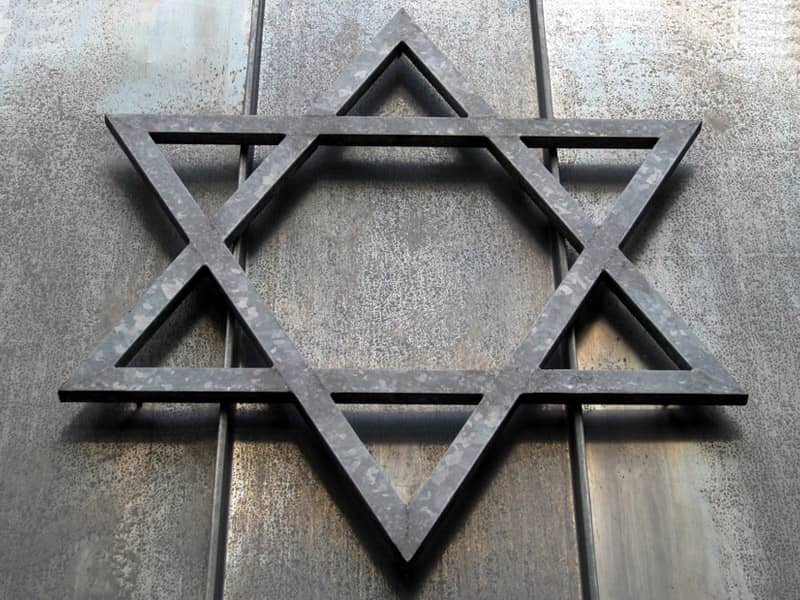We both grew up with the little blue pushke of the Jewish National Fund to pay for planting trees in Israel, and one of us came to Israel in 1967 to plant a tree in a JNF forest.
But this is new. For we are planting in very different places from those of the past--inside Israel, and beyond the Green Line.
We are part of a delegation of ten rabbis and about sixty other Jews from America and Europe, who have come to help Rabbis for Human Rights plant trees to ensure that Israel fulfill its vision as a country that exemplifies the moral values of Judaism. RHR is the only Israeli rabbinic organization that includes Orthodox, Conservative, Reform, Reconstructionist, and renewal rabbis. Its work is so well-respected in America that the rabbinic organizations of the Reform, Reconstructionist, and Conservative denominations have all endorsed its efforts.
Several of the RHR rabbis are Americans who have made aliya [moved to Israel] and devote their professional and personal lives to the Jewish people, Zionism, and Israel. They protect the human rights of foreign workers in Tel Aviv, poverty-stricken Jews in Jerusalem, Bedouin nomads in the Negev, and Palestinians in West Bank villages.
We come at a time when, for fear of violence, very few Jews are visiting Israel. We share those fears, but despite them we have come to show our solidarity with our brothers and sisters who live in fear, and our commitment to an Israel that is Jewish, just, and democratic.
We head first to Katamonim, a Jerusalem neighborhood of Eastern Jews who still live in poverty, crowded in a neighborhood with only one patch of green space. The space is being sold to a developer, but the neighbors and the Society for Preservation of Nature in Israel want to preserve this place where trees, grass, and human beings can catch their breath. We stand with them, planting trees to support that breath of life.
Then we visit Bedouin who have twice been forcibly evicted from their West Bank tents and had their wells destroyed, so that an Israeli settlement could replace them. Now they live in a shanty town of hovels, close by the gleaming settlement of Maalei Adumim. We plant another hundred trees, which as they grow may pay for a year of schooling for a child, provide a dowry for a daughter.
And we go to visit Hares, a Palestinian village where many trees had been uprooted. Some were destroyed where some Palestinians may have thrown stones or shot rifles at Israelis using the Jews-only bypass roads that insulate the settlers from Palestinian life. But hundreds of trees had been uprooted in areas of the village far from the roads, where no sniper or rock-thrower could use their cover.
The Torah teaches (Deut. 20: 19-20) that even in time of war, fruit trees must not be destroyed. It is a realistic Torah, not utopian, for it adds that if trees are being used as bulwarks to protect a city under siege, they can be destroyed.
But Israelis have destroyed trees here that are not being used as "bulwarks." Such attacks make total war -- against the earth itself; against all citizens, not just those who use violence; against the very future.
So we have come to replant trees where they cannot be used as cover for violence. As we enter the town, dozens of schoolchildren appear at their windows, cheering and waving to greet the Jews who have come to listen and to plant.
As we wave back, Rabbi Arik Ascherman of RHR retells a story: One reason he feels impelled to do this work is that an elder of Hares had brought his young son to Arik, teaching the boy: "There are Jews who come without a gun or a bulldozer, who come as friends. Remember!"
And finally we plant pine trees in an Israeli forest that has been torched, probably by Palestinian arsonists. We pledge ourselves to affirm the right of both families of Abraham to live in peace and security.
Our visit has been fruitful. We have learned from our brother and sister Israelis, as well as from our Palestinian cousins, how Rabbis for Human Rights and their co-workers need our support to keep struggling, without violence, for justice and for Judaism. The fruits of their work hold the seeds of hope to ensure the renewal of the soul as well as the body of the Jewish state, to renew the vision of a Zion that is redeemed through righteousness.

